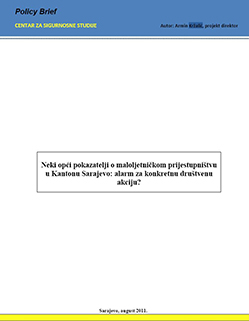
We kindly inform you that, as long as the subject affiliation of our 300.000+ articles is in progress, you might get unsufficient or no results on your third level or second level search. In this case, please broaden your search criteria.

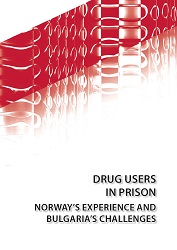
Publication looks over the situation of drug users in two European countries – Norway, known for its social and welfare-oriented state, and Bulgaria, which since the beginning of the transition from totalitarism to democracy lacks sustainable policies on prisons and drugs. The aim of this work is to comparatively present the penal policy towards drug users and the measures taken for convicted people addicted to narcotic substances, to identify those features which can be transferable and can assist Bulgarian authorities to improve the situation of drug users in and outside the prison. Finally, this research will try to propose concrete measures to be taken both within the penitentiary system and as crime prevention efforts among drug users.
More...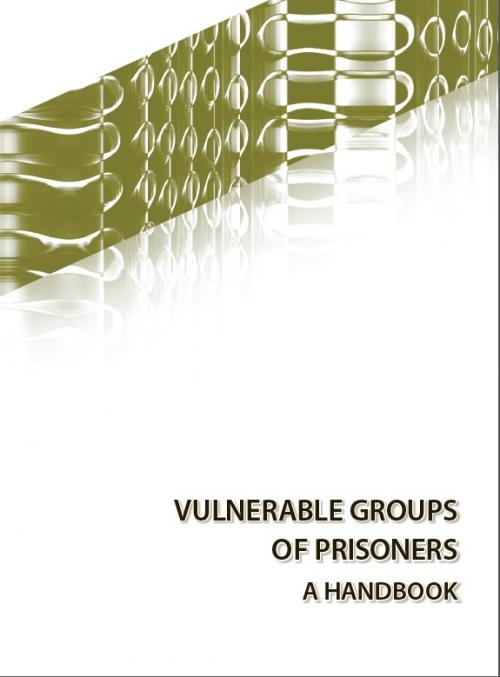
In prison, certain groups of inmates are subject to disadvantages due to specifics of their origin, gender, sexual orientation, age, etc. These groups usually need special treatment, which is not always provided, which leads to unequal treatment and violation of their rights. This handbook examines the situation of such vulnerable groups within the prison systems of Belgium, Bulgaria, Germany, Lithuania and Spain. Starting from the classification of the UN Handbook on Prisoners with special needs and looking at the different national contexts, the authors identify different groups as vulnerable in different countries. In order to encompass as many groups as possible, their list was extended to include some particularly marginalised groups, such as sex offenders, prisoners with disabilities, etc. Each group is viewed in context, explaining the situations of vulnerability both generally and in the selected countries. From one side, the handbook presents the efforts for compensation of vulnerabilities in every country available in the legislation or provided by prison authorities or other actors. From the other side, it identifies the gaps in the measures and practices, which vary both from country to country and from group to group.
More...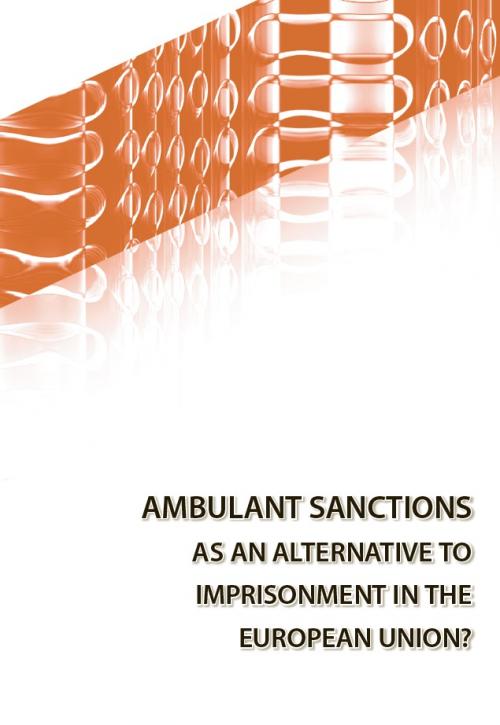
The issue of imprisonment vs. alternative penalties has been debated in various European countries during the last decades, and ambulant sanctions have been heavily on the rise. Community sentences and other alternatives to imprisonment are regarded as modern instruments for the rehabilitation of offenders. The objective of the present study is to examine the scope of application of penalties without deprivation of liberty as compared to imprisonment as well as to identify promising practices of alternative criminal sanctioning in Belgium, Bulgaria, Germany, Spain and Lithuania. As this study covers several European countries, the comparative perspective suggests itself nearly as a matter of course. In this connection, it seems reasonable to describe the existing ambulant sanctions of the different member states involved, taking into account their legal arrangement and their relation within the system of penal sanctions including their relation to the deprivation of liberty. It in addition appears sensible to describe and compare these ambulant sanctions with reference to their contribution to the re-socialisation or rehabilitation of those subjected to them as well as with special attention to the involvement of civil society in their execution. In a further step, promising practices in connection with ambulant sanctions could be highlighted which may be recommended for imitation by other member states. Such an approach proves to be impossible for multiple reasons, though, and it would be inadequate just to make such an attempt. There are exemplary references to ambulant sanctions in Belgium, Bulgaria, Germany, Lithuania and Spain. This is due to the fact that scientists from these countries have taken part in the realisation of this project but not necessarily because of specific outstanding features of their sanction systems in comparison with other member states.
More...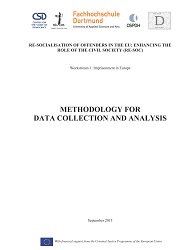
The successful implementation of the activities under the recently launched initiative Re-socialization of offenders in the EU: enhancing the role of the civil society (RE-SOC) depends on the expanded knowledge of the prison systems in the participating countries. Therefore, a separate set of activities is dedicated to the collection, analysis and systematization of the available information and tailoring it to the specificities of the other initiative activities. To facilitate this process a Methodology for data collection and analysis was developed, which includes the following components: (1) list of issues to be covered; (2) recommended sources to be consulted and relevant international standards; (3) methodological guidelines on how to collect, analyze and present information; (4) glossary of terms; and (5) language and style requirements. The developed methodology will be used for analyzing the information collected for several EU Member States. The analysis will aim to answer specific questions related to the prison system: structure and legal framework of the penitentiary system, prison capacity, number and structure of the prison population, etc. The results of the analysis will be summarized in country background papers.
More...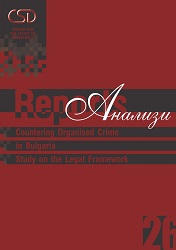
The publication analyses and assesses the legal framework on countering organised crime and examines the problems, which arise in its practical application. On this basis, recommendations are made to improve the legislation and bring it into conformity with international standards and the existing good practices, as well as to overcome the weaknesses in the application of law which impede the detection and punishment of organised criminal activity or infringe fundamental principles of criminal procedure and the rights of the participants in it.
More...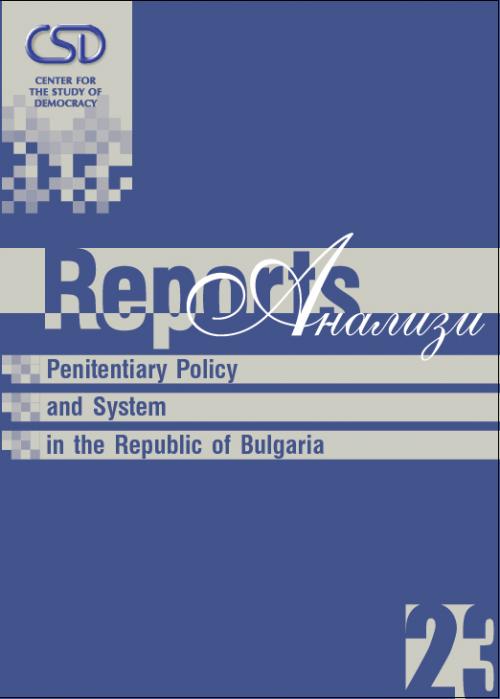
The report explores to what extent Bulgaria has introduced the European standards in the legal regulation of the prison system and the execution of the penal sanction of imprisonment, how are they implemented in practice, what is the State’s penal policy and strategy in this area in general and in respect to drug-addicted prisoners in particular, and what is the opinion of the people working in the penitentiary system and the non-governmental organizations monitoring the activities of penitentiary facilities.
More...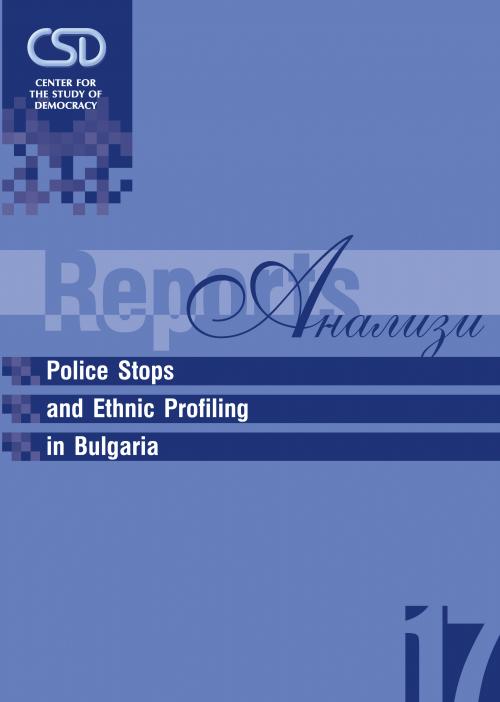
Between June and December 2005 the Center for the Study of Democracy and Vitosha Research, supported by the Open Society Justice Initiative carried out a study of police stops. The resulting report Police Stops and Ethnic Profiling in Bulgaria examines the use of stops by the Bulgarian police, focusing on the practices of disproportionate stops of members of the Roma ethnic minority. The report also highlights issues related to police abuse during stops as well as crime among in Roma communities. // The study is part of a Europe-wide initiative aimed to map discriminatory police practices across Europe. In addition to Bulgaria, research was carried out in Spain, Hungary and Russia indicating that there is disproportionate treatment of minorities by the police in all these countries. // Police stops are the main point of contact between officers and citizens. Police officers view stops as essential for detecting and preventing crime. Therefore, the appropriate use of this tool is crucial to police efficiency, whereas when used in the wrong way, it could seriously deteriorate the relations between citizens and the police. The findings and the report were launched at a public meeting of the National Crime Prevention Commission on September 19, 2006.
More...
The report uses a crime victimization survey as an alternative analytical tool to make an independent assessment of the crime situation in Bulgaria for the period 2001–2004. The crime victimization survey polls people’s experiences with crime. Unlike official government crime statistics, the regular crime victimization surveys help the police and government authorities, as well as the public to understand: • whether the official police crime data reflect the real crime rate and crime trends; • the volume of the unreported crime; • the reasons victims do not report crimes to the police; • whether the police avoids registering reported crimes; • the profile of the social groups that are most at risk of falling victims to crime.
More...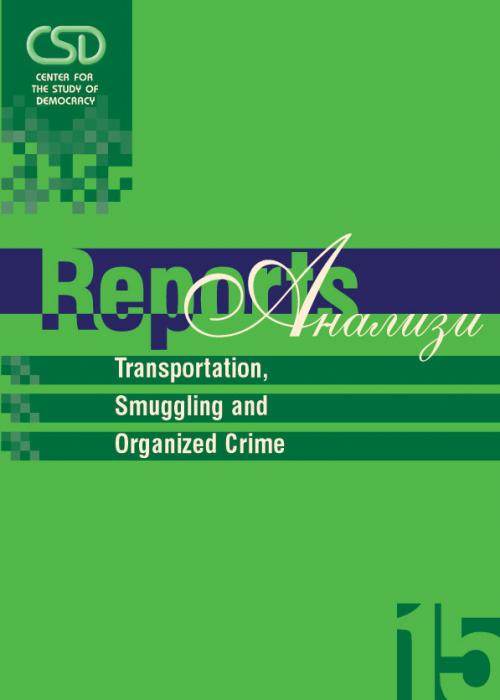
The report analyses the participation of transportation companies in smuggling practices, more specifically: // • it examines and describes a range of companies and individuals involved in organized crime groups whose main business is the trafficking of consumer goods. // • it also gives and overview of the criminal and semi-legal networks involved in smuggling Chinese and Turkish goods. // • it presents new data on oil and oil products smuggling. // • it examines the role of duty-free shops and their involvement in illicit cigarettes imports.
More...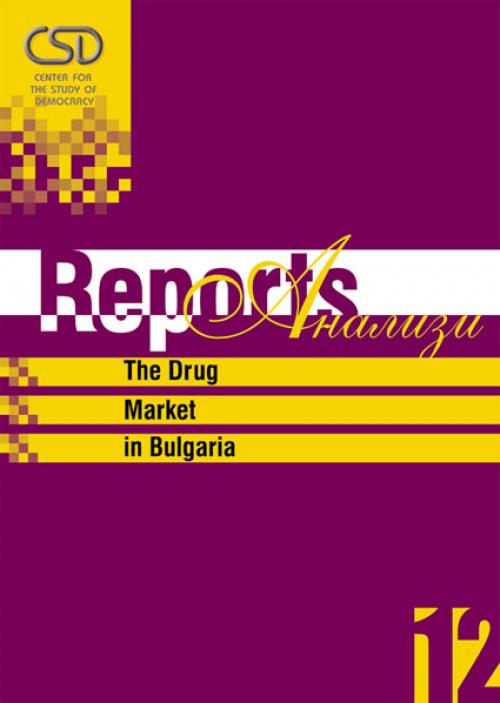
The Center for the Study of Democracy has undertaken a special inquiry into the topic of drug abuse - which was fueled by the drug epidemic of the late 1990s and has grown to become a real social threat - and the problem of drug dealing, which is a major mechanism for the generation of organized crime in Bulgaria. This report addresses drug supply and demand in Bulgaria with the ambition of mapping a vast information void and identifying the basic mechanisms and stakeholders of the drug market. However, the peculiarities of drug diffusion and consumption do not allow the use of the standard suite of economic research tools and vehicles throughout the study. This analysis has been divided into three sections. The first addresses the genesis of drug distribution, while the second describes its structure and functioning. The findings about supply presented in the first two parts are based on a series of in-depth interviews with dealers of different groups of drugs, long-term drug users, with police and security officers (experienced in combating drug traffic, drug production, and drug dealing), doctors, and civil organizations engaged in treatment services to drug addicts. Section 3 highlights drug demand, and brings into play the findings of the First National Population Survey on Drug Consumption in Bulgaria conducted by Vitosha Research. For the purpose of this study, CSD and Vitosha Research used the research tools of the European Monitoring Center on Drugs and Drug Addiction (EMCDDA). While paying attention to a variety of views, the team of authors has tried to find common ground upon which to evaluate the actual number of drug users in the country. Even if population-based surveys are often unreliable due to stigmatized and hidden patterns of drug use, they are the type of surveys that provide a comprehensive representation of the situation in the country, as well as reference material for later in-depth studies.In addition, a series of indirect variables, tailored to Bulgarian circumstances, were drawn up to register psychoactive substance use. Two more surveys, of the qualitative type, were conducted: one among heroin addicts and frequent users of soft drugs, and another among experts and treatment agencies. This report was developed by the CSD as part of project evaluating the patterns of drug supply and demand in Bulgaria.
More...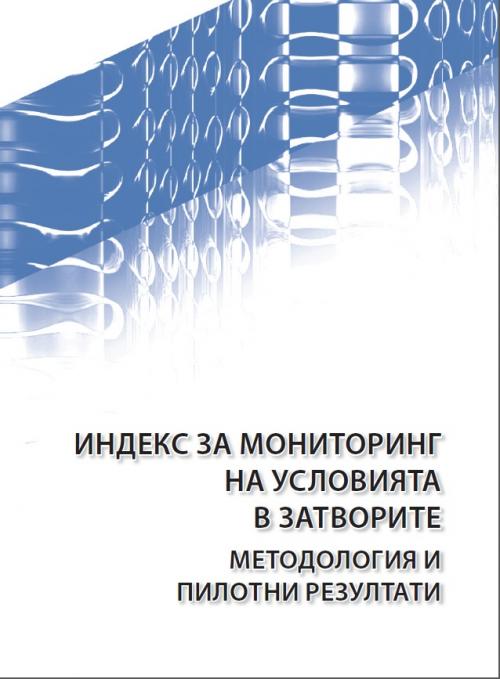
International organisations, national governments and human rights NGOs exercise various types of monitoring of the penitentiary systems. In order to quantify their results, there are some generally accepted indicators (such as the number of inmates per 100.000 citizens), but in many specific areas like healthcare, employment, security and safety, such indicators have never been applied. Therefore, those monitoring efforts will substantially benefit from an instrument capable of supplying comparable and easy-to-use data on the situation in prisons. To address this need, the Center for the Study of Democracy, in cooperation with the Dortmund University of Applied Sciences and Arts, the Observatory on the Penal System and Human Rights with the University of Barcelona, the Law Institute of Lithuania and Association Droit au Droit, developed a Prison Conditions Monitoring Index (PCMI) – a system of indicators translating into comparable figures the situation in different prisons. In the end of 2014, the PCMI was piloted in several prisons in Bulgaria, Germany and Lithuania to test its operability and analyse the potential use of the results it generates. The present report elaborates on the methodology underlying the PCMI and offers a summary of the results of its pilot implementation. It is intended for a broad audience of readers including policy makers, prison staff, lawyers, social workers, academics and NGOs interested in the topic of prison monitoring.
More...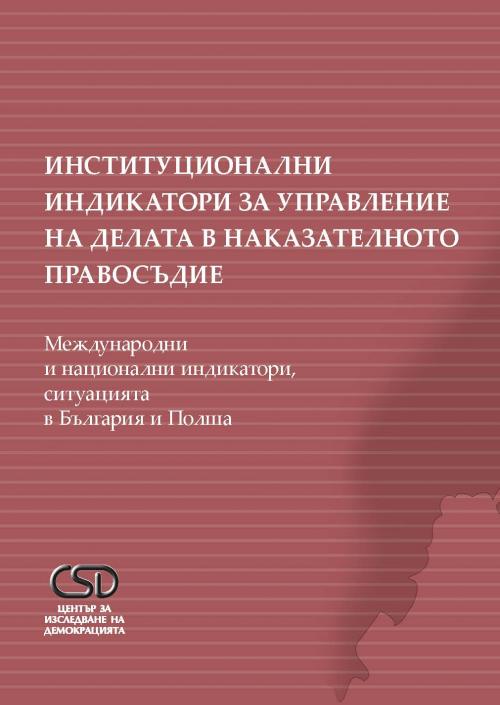
This publication reviews the existing practices of courts’ performance measurement and criminal cases management based on the concepts of efficiency and effectiveness, transparency, quality care, benchmarking, result orientation and accountability. These efforts are considered on supranational and national level as two components of the process of implementing a quality model in the justice sector, growing increasingly intense at EU level. At national level, the report examines the achievements in implementing performance indicators in England and Wales, Germany, Netherlands, Finland, Belgium, France and Spain, as well as in Romania. The normative, policy and strategic framework of Bulgaria and Poland is also tackled in order to cover the prospects for introduction of such indicators in the two target countries.
More...
The issue of imprisonment vs. alternative penalties has been debated in various European countries during the last decades, and ambulant sanctions have been heavily on the rise. Community sentences and other alternatives to imprisonment are regarded as modern instruments for the rehabilitation of offenders. The objective of the present study is to examine the scope of application of penalties without deprivation of liberty as compared to imprisonment as well as to identify promising practices of alternative criminal sanctioning in Belgium, Bulgaria, Germany, Spain and Lithuania. As this study covers several European countries, the comparative perspective suggests itself nearly as a matter of course. In this connection, it seems reasonable to describe the existing ambulant sanctions of the different member states involved, taking into account their legal arrangement and their relation within the system of penal sanctions including their relation to the deprivation of liberty. It in addition appears sensible to describe and compare these ambulant sanctions with reference to their contribution to the re-socialisation or rehabilitation of those subjected to them as well as with special attention to the involvement of civil society in their execution. In a further step, promising practices in connection with ambulant sanctions could be highlighted which may be recommended for imitation by other member states. Such an approach proves to be impossible for multiple reasons, though, and it would be inadequate just to make such an attempt. There are exemplary references to ambulant sanctions in Belgium, Bulgaria, Germany, Lithuania and Spain. This is due to the fact that scientists from these countries have taken part in the realisation of this project but not necessarily because of specific outstanding features of their sanction systems in comparison with other member states.
More...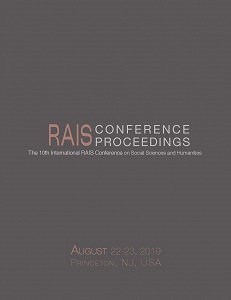
Individual conduct involves the orientation of actions in a certain way by making a decision. The attempt to establish the unique and appropriate purpose of the action is based on the intention to achieve that goal, followed by the elaboration of the mental plan for the realization of the action. In the deliberation, certain processes are underway to investigate the conditions for carrying out the criminal activity, assessing its effects in the objective reality. Following the analysis of the meanings, the reasons and the purpose pursued, the mental plan for the concrete realization of the criminal activity is finalized by making the decision to commit the crime. Finalizing the decision is followed by its execution to achieve the goal pursued, the aggressor using is hull psychophysical ability, knowledge, skills and ability in adopting a method of action. The manifestation of will is realized when the individual acts knowingly, even if the purpose of his actions coincides with the interests and needs of others. The guilt appears to be a force contrary to the manifestation of freedom of each individual, considered as the original behavioral form of any collectivity that opposes block of opposite behavior.
More...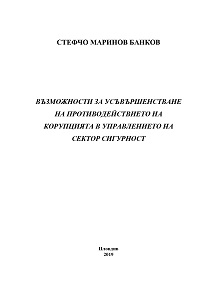
The study offers an effective methodology through which one can determine the steps which must be undertaken in order to investigate crimes of general character, as falling under Chapter VIII, Section II and Section IV from the Penal Code. The study presents an interconnected methodology of investigation starting from the moment of receival of a complaint, through the operational work carried out within the framework of the penal persecution, up until the stage of submission of the bill of indictment, as well as a detailed analysis and conclusion on the problems surrounding the specific instance of corruption in the Ministry of Interior Affairs. The latter analysis encompasses the crimes that the policeman committed, an assessment of his personality and illegal behavior, as well as an analysis of the ways to enhance the practices to prevent corruption in the future. The topic of the dissertation is pressing in the field of the fight against against corruption and it suggest how better efficiency and coordination could be achieved between and wihin the different organs and structures. The paper suggests also how the institutional framework could be adapted to better fit its purpose, which can only be done if indepedenent, competent and honest persons are placed in the leading positions of the anticorruption authorities. Without this, no system could safeguard its effectiveness. The scientific novelty is in the complex analysis of the efficiency of the current model aiming at fighting corruption in the "Security Sector".
More...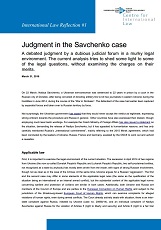
On 22 March, Nadiya Savchenko, a Ukrainian servicewoman was sentenced to 22 years in prison by a court in the Russian city of Donetsk, after being convicted of directing artillery fire to kill two journalists in eastern Ukraine during the hostilities in June 2014, during the course of the “War in Donbass”. The defendant of the case had earlier been captured by separatist forces and taken over to Russian territory by force. Not surprisingly, the Ukrainian government has stated that they would never accept the verdict as legitimate, expressing strong criticism towards the procedure and Russia in general. Other countries have also expressed their disdain, though employing much less harsh wordings. For example the Czech Ministry of Foreign Affairs has also issued a statement on the situation, demanding the release of Nadiya Savchenko, but it has appealed to humanitarian reasons, and has only carefully mentioned Russia’s „international commitments”, mainly referring to the 2015 Minsk agreement, which had been concluded by the leaders of Ukraine, Russia, France and Germany, assisted by the OSCE to work out and uphold a ceasefire.
More...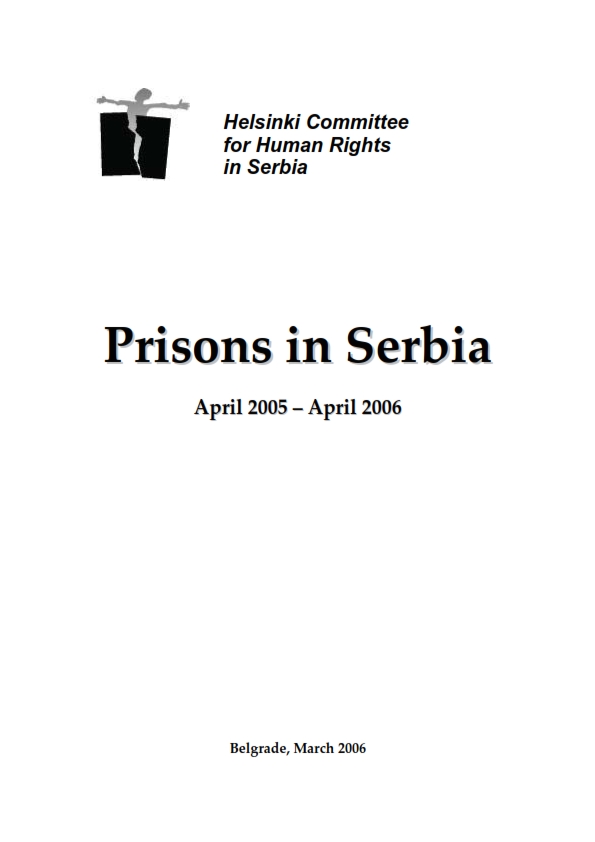
This publication is the output of the Helsinki Committee for Human Rights in Serbia’s activity over the third year of the implementation of the project “Prevention of Torture: Support to the Rehabilitation of Victims of Torture” realized with the assistance of the European Commission – European Initiative for Democracy and Human Rights. Apart from the Helsinki Committee for Human Rights in Serbia, this three-year project includes Bulgarian, Hungarian, Macedonian, Polish and Russian Helsinki committees, as well as the International Helsinki Federation. At regional level, the project aims at preventing torture, inhuman or degrading treatment or punishment in detention facilities (police stations, prisons, psychiatric institutions, etc.), encouraging non-governmental organizations to monitor overall conditions in these institutions and at exerting pressure on national governments to make it possible for the nongovernmental sector to conduct these fact-finding missions. [...]
More...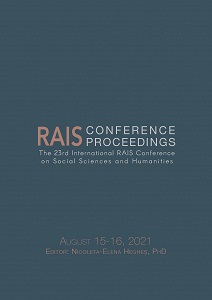
In order to create a better society, due importance must be given to persons deprived of their liberty, in the sense of changing their behavior, so that in the end they no longer commit antisocial acts. As a result, the necessary attention must be paid to the development of appropriate educational and social programs, as well as to places of detention. Thus, as we will show below, the architecture of the penitentiary should be different, both inside and out. We cannot achieve the expected resocialization if we do not adapt the construction of detention units and educational programs to a positive purpose and not to a punitive one.
More...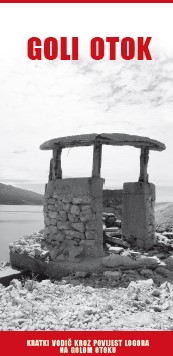
Goli otok je mjesto obilježeno represijom jugoslavenskog komunističkog režima nad tisućama pojedinaca koji su na otoku bili zatočeni. Negostoljubivi i nenaseljeni otok između Raba i Senja predstavlja jedno od simbolički najvažnijih mjesta u suvremenoj povijesti Hrvatske, odnosno bivše Jugoslavije. No od nekadašnjeg logora, kasnije zatvora na Golom otoku, ostale su tek derutne i devastirane zgrade po kojima zimi pasu ovce, a ljeti šetaju turisti u potrazi za iskustvom “jadranskog Alcatraza” koje im prodaju turističke agencije i lokalni brodari. Iako su za Goli otok gotovi svi u Hrvatskoj čuli, rijetki o njemu mogu reći više od nekoliko smislenih rečenica. Jedan od važnijih razloga ovog nesrazmjera je i donedavni manjak širokoobuhvatnih znanstvenih istraživanja Golog otoka. Objavom knjige “Povijest Golog otoka” dr. Martina Previšića početkom 2019. godine učinjen je veliki iskorak u znanstvenom istraživanju ove važne teme. No Previšićeva knjiga od šestotinjak stranica svojim opsegom uvelike nadilazi potrebe za informiranjem prosječnog posjetitelja, odnosno šire javnosti.
More...